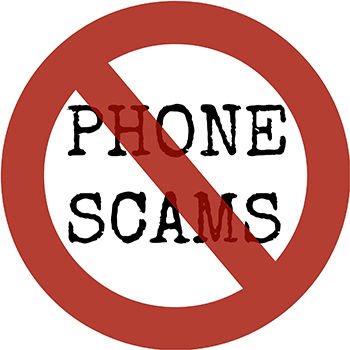
Avoiding Tax Scams in Retirement
Every year, as the April tax deadline approaches, there’s an increase in the number of tax-related scams that are reported according to Transaction Network Services.
Thousands of taxpayers are duped every year and retirees are among the most vulnerable for this type of fraud because criminals believe they have a significant amount of money that can be targeted. To detect fraudulent activity and avoid falling prey to tax scams, it’s important to be vigilant and realize that tax scams are common. It can happen to you. Every year, well-meaning people lose millions of dollars along with their personal information to tax scams. This article provides some important tips to avoid identity theft and tax fraud this season. 1,2,5,7
A cardinal rule that applies all year round, but especially at tax season is to never give personal information away over the phone. Scam artists often pose as IRS agents over the phone, in-person, through text, and even in social media. By spoofing the caller ID service, scammers are able to make their phone numbers show up as the IRS on your caller ID. It’s illegal to spoof a caller ID in order to cause harm or defraud someone, but that doesn’t stop criminals from doing it. These scammers may have some of your personal information that they’ve gathered online and they can use this information to make themselves sound more credible. You may even hear some background noise on the call to make the ruse more convincing. 1,6
Tax scammers have been known to use telephone, snail mail, social media, or email to cheat individuals as well as businesses and even tax preparers. Though the IRS may contact you via the phone and they may also show up at your door, the IRS does not make contact with taxpayers via social media, email, or text to obtain financial information or payment. The most common way for the IRS to contact taxpayers is through regular U.S. postal mail. And when the IRS intends to contact taxpayers in person or over the phone, they usually send several notices first. Always be suspicious if you receive communication from the IRS asking for immediate payment. Don’t rush to pay, but instead investigate the request first to make sure it is indeed valid. Call the IRS at 1-800-829-1040 to inquire about the validity of any request for payment.1,2,3
If anyone ever asks you to give out your Social Security number, hang up.
Your Social Security number is like a key that can unlock important financial and personal information that exists online or in databases throughout the world. If someone contacts you over the phone for personal information, it’s totally acceptable to say that you’re not okay giving that information away over the phone. 1
By filing taxes earlier rather than later, you can sometimes avoid tax scams.
Some criminals may try to gather online information about you and then use this information to file taxes. In this way, they can steal any tax refund that you may be entitled to. And besides losing the tax refund, you may also have a more difficult time filing your actual taxes as a result. Filing early reduces your risk of being scammed in this way.1
Be wary of “ghost” tax preparers who may promise big refunds or charge fees that are based on a percentage of the refund.
“Ghost” preparers will require payment in cash and they won’t provide a receipt for their services. Their tactic is to invent income, or claim fake deductions or tax credits for their clients in order to boost the refund. These scammers then direct their clients’ refunds into their own bank account. If you hire someone to prepare your tax documents, always be sure to review your tax return before submitting it to make sure all of the information it contains is correct. Use the IRS Directory of Federal Tax Return Preparers to avoid scams related to tax preparation. Find a legitimate preparer with specific qualifications using the searchable database.4,8
If you submit your taxes online to the IRS, make sure that your computer is free of viruses and that you only work with websites that are encrypted.
Install and update your anti-virus software before submitting online tax documents. Never share personal information with a web site that does not have “https” in its URL. Use only strong passwords for all of your accounts, including banking and social media accounts that contain any personal or identifying information about you e.g. children’s or pets’ names. 1
Though the IRS may knock on your door if you are being audited or if you have a delinquent return or a delinquent tax payment, usually the IRS will send notices via the U.S. postal service first. When real IRS agents arrive at your doorstep, they carry two forms of ID. Always ask to see identification if someone arrives at your home asking for payment or your personal information. Most importantly, if someone shows up at your door claiming to be from the IRS, any payments that you make to the IRS should be made out to the “United States Treasury”.
1 - money.usnews.com/money/retirement/aging/articles/8-ways-for-retirees-to-avoid-tax-scams 7- https:// 8 -
2 - www.irs.gov/newsroom/tax-scams-consumer-alerts
3 - www.irs.gov/newsroom/how-to-know-its-really-the-irs-calling-or-knocking-on-your-door
4 - www.irs.gov/newsroom/irs-dont-be-victim-to-a-ghost-tax-return-preparer
5 - www.marketwatch.com/story/tax-scammers-are-looking-for-you-heres-how-to-avoid-them-2019-02-28
6 - lifehacker.com/how-to-spoof-caller-id-5853056
7 - www.ncoa.org/economic-security/money-management/scams-security/top-10-scams-targeting-seniors/
8 - https://www.irs.gov/newsroom/ten-tips-for-choosing-a-tax-p








